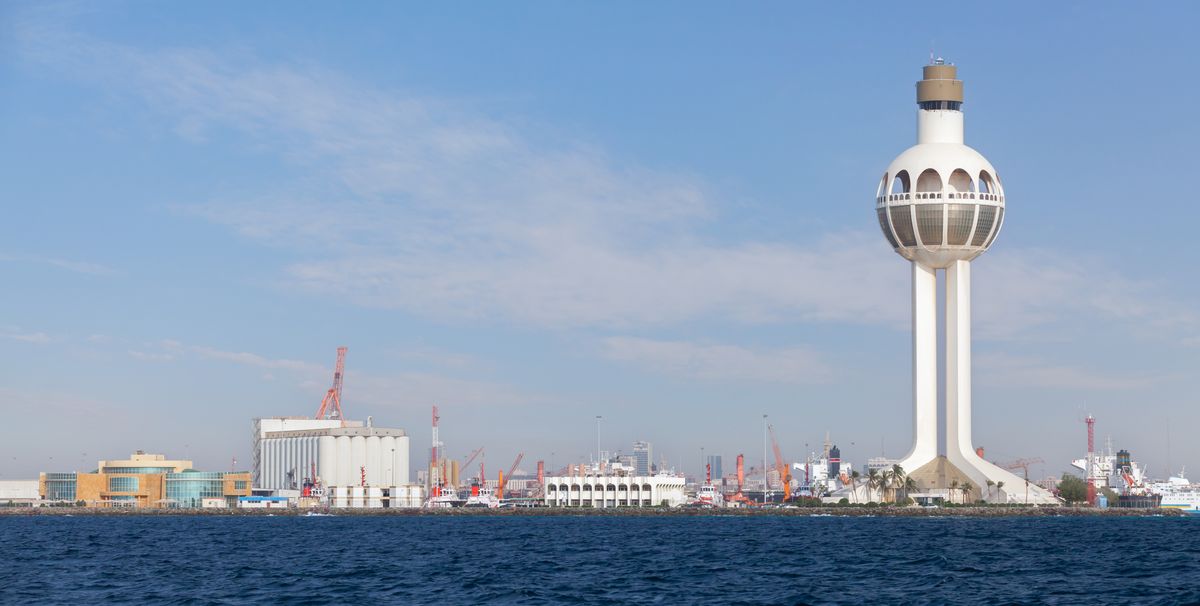China Reaffirms Role in Ukraine Peace Process at Saudi Arabia Summit

The Lede: A high-level peace summit hosted by Saudi Arabia wrapped up over the weekend with little progress made in ending the Russia-Ukraine War, but China’s attendance reaffirmed its diplomatic role in negotiating an end to the conflict and included a short meeting with U.S. officials.
What We Know:
- The two-day summit in the Red Sea coastal city of Jeddah was the second of its kind after a similar forum in Copenhagen earlier in the summer. 42 countries were in attendance including the U.S.-led Western nations and the BRICS group excluding Russia, which was not invited. They aim to draft key principles on bringing an end to the Russia-Ukraine War. China voiced support of a third round of talks to find a framework for peace in Ukraine.
- At the summit, U.S. National security adviser Jake Sullivan and acting Deputy Secretary of State Victoria Nuland held a brief meeting with China’s envoy for Eurasia Li Hui.
- Ukraine’s conditions for peace stipulate the full withdrawal of Russian forces from its territory to the 1991 border of its sovereignty, which Russia is still not likely to acquiesce to given its control of Crimea and large portions of the country’s east.
- On Monday after the summit in Saudi Arabia, Chinese foreign minister Wang Yi spoke to his Russian counterpart Sergei Lavrov in a phone conversation. He reassured the Russian side that Beijing remains an impartial, objective, and rational voice that would actively promote peace talks and seek a political solution to the conflict on any multilateral occasion despite China’s attendance to the talks that excluded Moscow.
The Background: Since the start of the war, Western countries have hoped that China could play a role in swaying Russia in the conflict. However, the West’s pressure on both Beijing and Moscow have helped to shore up their partnership and commitment to countering the U.S.-led world order. Beijing has never condemned Moscow in its invasion and the two countries have strengthened economic, diplomatic, and security ties. China has been strengthening ties with Saudi Arabia in recent months. In April, Chinese President Xi Jinping made a phone call to Ukranian President Volodymyr Zelensky to discuss ending the war and future bilateral relations. Beijing has also recently announced curbs on exports of drones to the Russia-Ukraine war theater due to their possible dual-use military applications. China has recently spoken out against the treatment of five of its citizens who were denied entry into Russia
Likely Outcomes:
- It appears that China attended this summit in Jeddah, but not the first one in Copenhagen due to the stance of the host countries in regard to Russia. Beijing may be signaling its desire to emphasize the voices of countries that do not hold ironclad stances on the Russia-Ukraine War. Moving forward, China’s approach to its role as a mediator in the diplomatic peace process may trend toward elevating the views of countries in the Global South including its BRICS partners and beyond.
- The U.S. remains firmly committed to the Ukrainian side in the war, but an amicable settlement of the war involving Chinese mediation may be an area of agreement between Washington and Beijing as both sides have been stepping up high-level visits and meetings in their efforts to find some common ground amid the high tensions that have built up over the years. Still, the U.S.-China relationship remains largely confrontational with economic and trade curbs increasing almost weekly.
Quotables:
“On the Ukraine crisis, China will uphold an independent and impartial position, sound an objective and rational voice, actively promote peace talks, and strive to seek a political solution on any international multilateral occasion.” - Wang Yi, foreign minister and State Councilor of China
“If they seriously want to find a solution, would they really just be following the lead of the Saudis when Xi Jinping could be doing shuttle diplomacy between Moscow and Kyiv? What is most important to Xi Jinping is that he and people like him do not get challenged. If Putin can lose power, what kind of example is that going to set?” - Steve Tsang, the director of the China Institute at SOAS University of London
“We are not looking at these talks as generating any concrete deliverables. We have long said that it would be productive for China to play a role in ending the war in Ukraine, if it was willing to play a role that respected Ukraine’s territorial integrity and Ukraine’s sovereignty. Russia has shown no sign of curtailing its imperialist ambitions or coming to the negotiating table. Should there ever be peace negotiations, it’s Ukraine that will be in the lead, from the non-Russian side. The United States is happy to play any role that is productive, to stand with our Ukrainian partners, and we would welcome any other country that wants to play a productive role as well” - Matthew Miller, spokesperson for the U.S. Department of State
"Although Ukraine is the biggest victim, if we really want peace, we have to involve Moscow in this process in some form.” - Celso Amorim, Chief Advisor of the Presidency of Brazil
Good Reads:
Saudi Arabia kicks off Ukraine talks that exclude Russia (Al Jazeera)
Latest in Ukraine: Jeddah Summit Wraps, More Peace Talks Planned (VOA)
US officials briefly met Chinese envoy on sidelines of Saudi summit for Ukraine (The Hill)
China assures Russia it remains ‘impartial’ on Ukraine war after attending Saudi peace talks (CNN)
China reassures Russia it's still impartial after Ukraine war talks in Saudi Arabia (NBC)
Foreign Ministers of China and Russia Confer After Jeddah Talks (NYT)
China ‘backs further Ukraine peace talks’ after Saudi Arabia summit (The Guardian)
